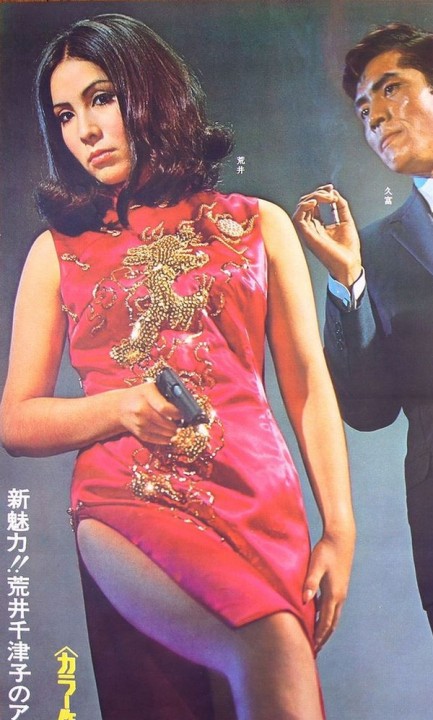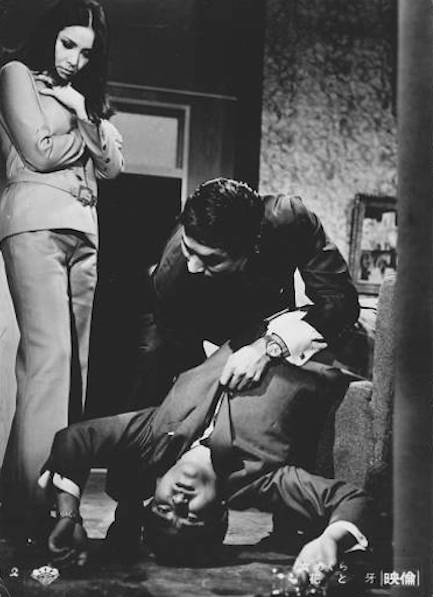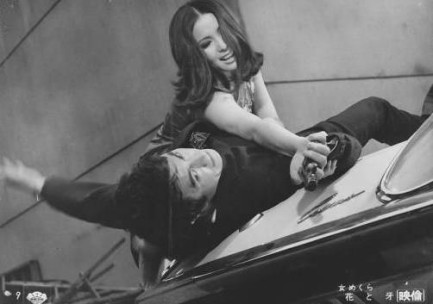 Qipao! Qipao! The cheongsam killer strikes. 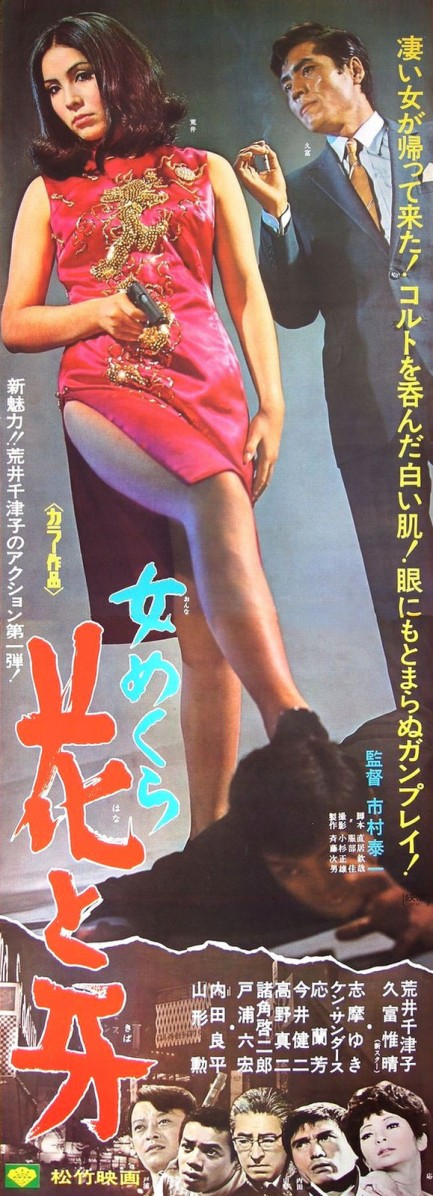
Two companies, same release date, but we've confirmed it with our Japanese sources, so don't blame us if it's wrong. Onna mekura hana to kiba, aka Blind Woman: Flower and Fangs also premiered today in 1968, starring Koreharu Hisatomi, Isao Yamagata, Ken Sanders, and Chizuko Arai, who you see fronting the poster in a killer silk cheongsam. For the boys out there, that's a traditional dress of Chinese origin also known as a qipao. Hope that enriched your day.
Arai plays a woman who returns to Japan from Hong Kong to find the truth behind the death of the father-figure Yaukza gangster who took her in as an orphan, raised her, taught her to shoot, gamble, and generally be a badass, but went over a cliff when his plan to attack a U.S. military transport along with four henchmen went wrong. Arai finds unexpected assistance in her search for answers, and learns that there was an unknown sixth person on the raid who may have stolen the money and betrayed the others. As you'd expect, the answers get even more complicated from that point, and danger mounts as someone resolves to stop her investigation in its tracks. In general the movie follows the basic blueprint of numerous other Yakuza crime thrillers, complete to the romantic subplot. We aren't sure if you'd call this entry a classic of the genre, but it's one of the better films of Arai's brief career. It's probably hard to find in the U.S., but if you can locate it we think it's certainly worth a watch, as are her other efforts. Onna mekura hana to kiba premiered in Japan today in 1968.
 Amid medieval Japan’s manners and restraint, how can a person tell the difference between love, honor, and duty? 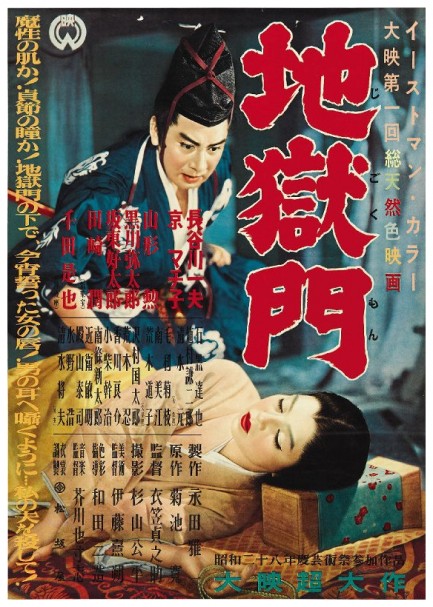
Above is a poster for Teinosuke Kinugasa’s masterwork samurai drama Jigokumon, which was known in English as Gate of Hell. It was the first Japanese film shot in color, via the process Eastmancolor, which was a leap beyond three-strip Technicolor, and one that makes Jigokumon blaze like a supernova. The story, from a play by Kan Kikuchi, concerns a Heian-era samurai named Moritoh whose bravery during a battle is rewarded by his lord granting him anything he desires. What he desires is the Lady Kesa. Problem is she’s married to another samurai. The lord mistakenly grants Moritoh’s wish, which is soon revealed to be impossible, but Moritoh resolves to have Kesa anyway, by any means necessary—trickery, bribery, even all-out murder. What develops is not just a thriller about entitlement and lust, but a meditation on honor, love and, especially, social strictures. Jigokumon was a sensation. A hit in Japan, it was a revelation to foreign audiences. It took home the Palme d’Or from the 1954 Cannes Film Festival, a 1955 special Academy Award for Best Foreign Language Film, an Oscar for Best Costume Design in a color film, and more prestigious nods. Along with Akira Kurosawa’s Rashomon, Kimisaburo Yoshimura’s Genji Monogatari, Kenji Mizoguchi’s Ugetsu Monogatari, and other films from the early 1950s, it marked the emergence of Japanese cinema onto the international scene. We’ve posted a large group of screen grabs below—perhaps overkill, considering how many—but the film just looks so damn good and the shots are so spectacular that we couldn’t help ourselves. Jigokumon premiered in Japan today in 1953. 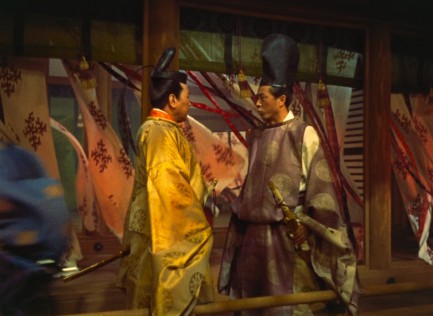 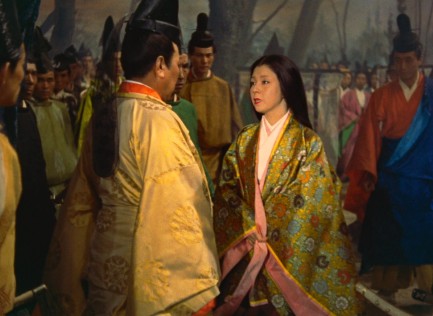 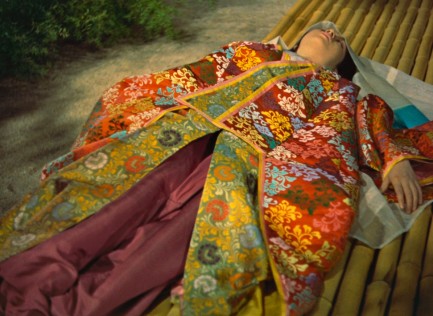 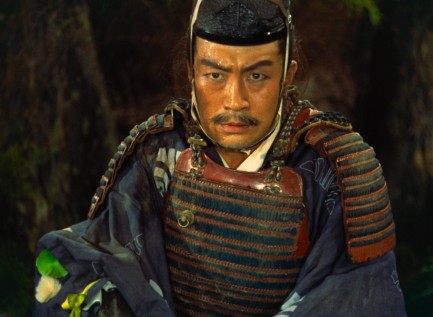 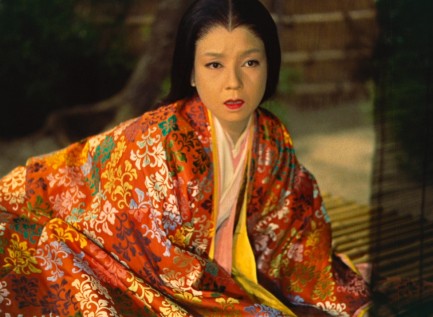 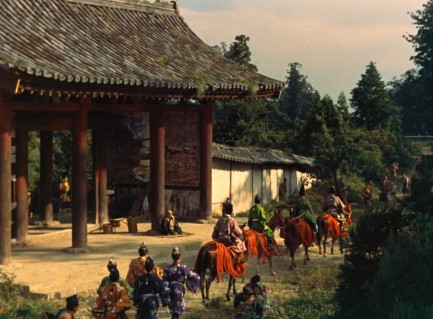 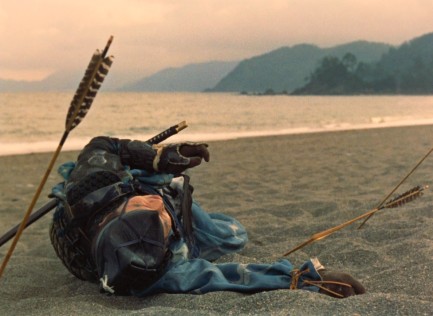 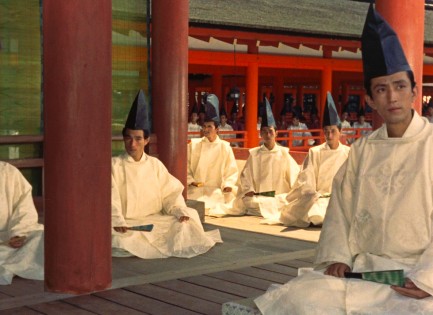 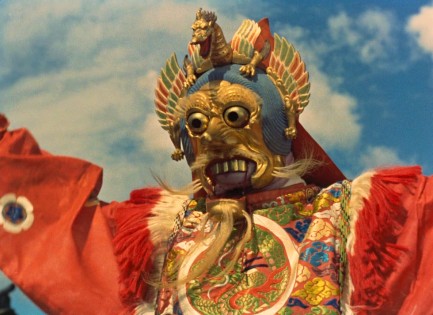 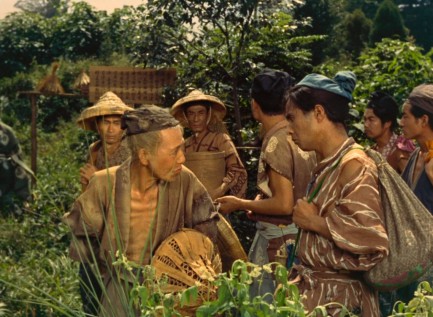 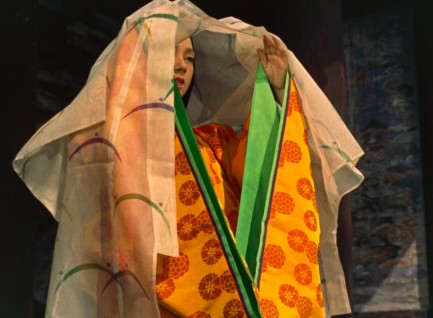 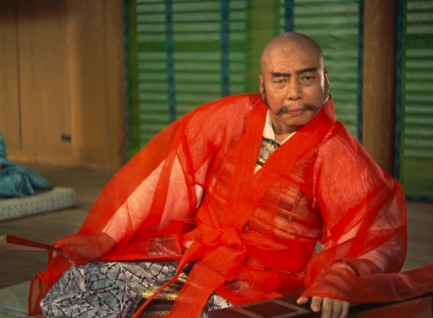 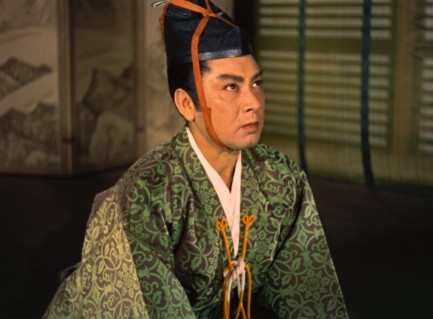 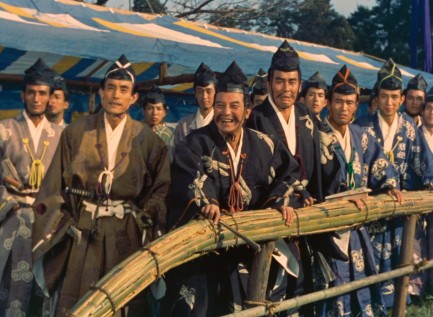 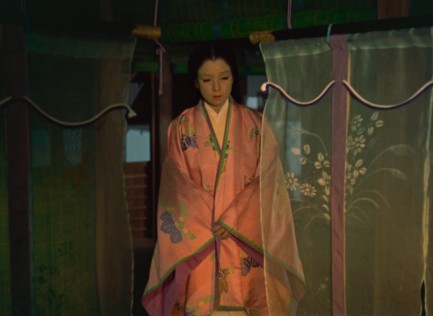
|
 |

The headlines that mattered yesteryear.
2003—Hope Dies
Film legend Bob Hope dies of pneumonia two months after celebrating his 100th birthday. 1945—Churchill Given the Sack
In spite of admiring Winston Churchill as a great wartime leader, Britons elect
Clement Attlee the nation's new prime minister in a sweeping victory for the Labour Party over the Conservatives. 1952—Evita Peron Dies
Eva Duarte de Peron, aka Evita, wife of the president of the Argentine Republic, dies from cancer at age 33. Evita had brought the working classes into a position of political power never witnessed before, but was hated by the nation's powerful military class. She is lain to rest in Milan, Italy in a secret grave under a nun's name, but is eventually returned to Argentina for reburial beside her husband in 1974. 1943—Mussolini Calls It Quits
Italian dictator Benito Mussolini steps down as head of the armed forces and the government. It soon becomes clear that Il Duce did not relinquish power voluntarily, but was forced to resign after former Fascist colleagues turned against him. He is later installed by Germany as leader of the Italian Social Republic in the north of the country, but is killed by partisans in 1945.
|

|
|

It's easy. We have an uploader that makes it a snap. Use it to submit your art, text, header, and subhead. Your post can be funny, serious, or anything in between, as long as it's vintage pulp. You'll get a byline and experience the fleeting pride of free authorship. We'll edit your post for typos, but the rest is up to you. Click here to give us your best shot.

|
|


